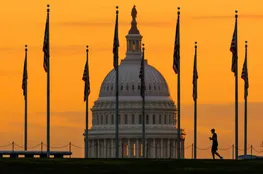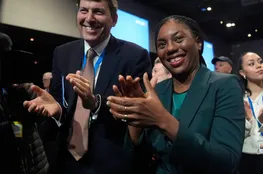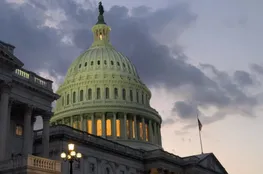As the political landscape remained uncertain following Election Day, speculation grew regarding the control of the U.S. House of Representatives, while the Senate seemed poised to come under Republican leadership. President-elect Donald Trump, buoyed by the election outcomes, delivered an optimistic address as results continued to stream in. On the day following the election, Vice President Kamala Harris addressed the nation at Howard University, advocating for a seamless and peaceful transition of power, urging unity and governance for all citizens during Trump's anticipated second term.
Economic concerns were paramount in voters' minds, influenced by the persistent challenges faced by many Americans. Mark Hamrick, a seasoned economic analyst and prominent figure at Bankrate, highlighted the economic drivers shaping voter sentiment, emphasizing the weight of economic recovery expectations on the upcoming administration. Former President Barack Obama, recognizing these sentiments, acknowledged the widespread feelings of economic stagnation among the populace. Obama's statement underscored the necessity for effective governance to address economic disparities and improve financial prospects for everyday citizens.
The incoming administration faces the daunting task of navigating economic recovery while attempting to honor campaign commitments aimed at financial revitalization and easing economic strains on labor markets. One proposed economic strategy involves reassessing U.S. fiscal policy regarding imports, particularly tariffs on goods from countries like China, as a means of generating revenue and compensating for previous tax cuts. Hamrick acknowledged the challenges inherent in this approach, questioning the feasibility of tariffs achieving substantial fiscal recovery and fulfilling economic promises made during the campaign.
The complexities of economic policy are further compounded by the interplay with central banking policy. Both major candidates in the election recognized the constraints on governmental influence over market prices. The Federal Reserve plays a pivotal role in managing monetary policy, and President Trump has expressed interest in exerting greater influence over the central bank—a stance that traditionally conflicts with the institution's independence. Economic policy under Trump's administration will require balancing fiscal strategies with market realities, respecting Federal Reserve autonomy while pursuing policies aimed at economic growth and stability. The forthcoming administration's handling of these challenges will significantly shape U.S. economic prospects in the coming years.
























